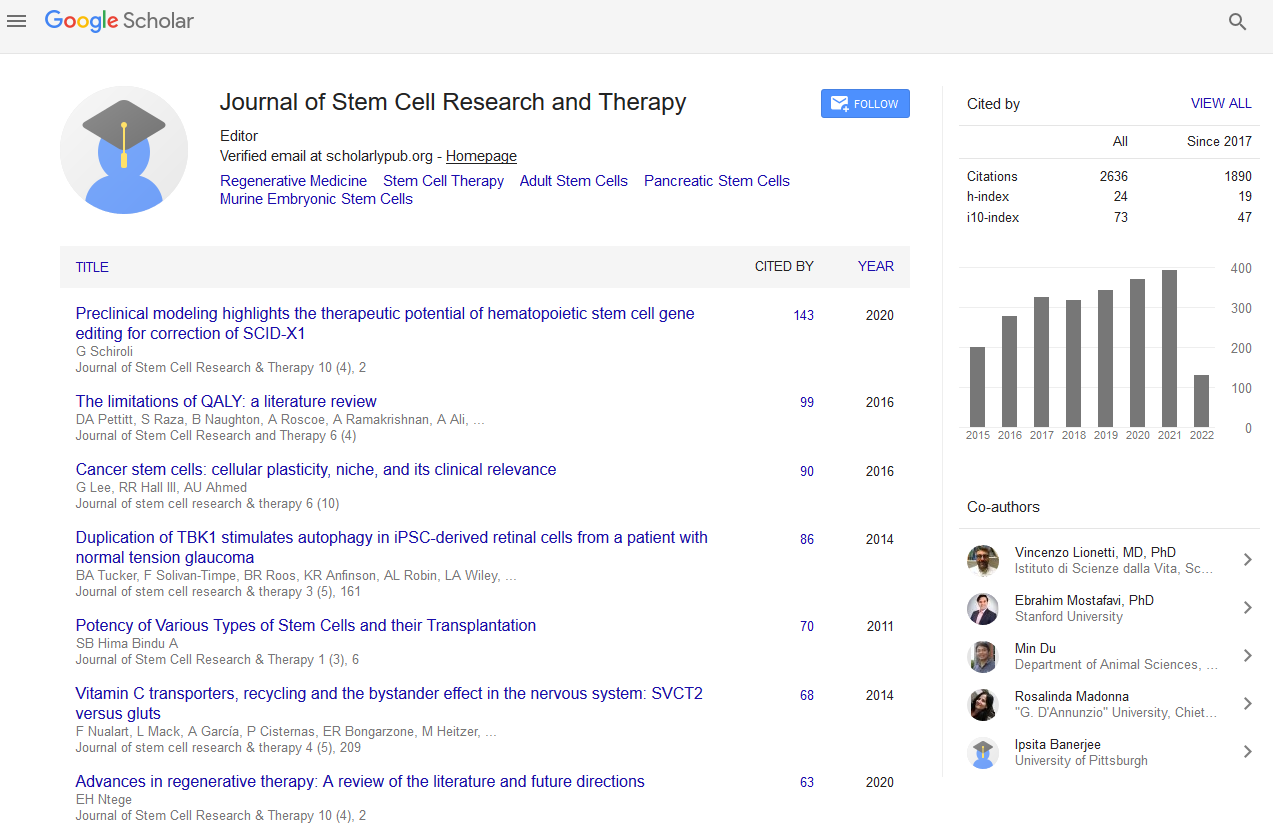Indexed In
- Open J Gate
- Genamics JournalSeek
- Academic Keys
- JournalTOCs
- China National Knowledge Infrastructure (CNKI)
- Ulrich's Periodicals Directory
- RefSeek
- Hamdard University
- EBSCO A-Z
- Directory of Abstract Indexing for Journals
- OCLC- WorldCat
- Publons
- Geneva Foundation for Medical Education and Research
- Euro Pub
- Google Scholar
Useful Links
Share This Page
Journal Flyer

Open Access Journals
- Agri and Aquaculture
- Biochemistry
- Bioinformatics & Systems Biology
- Business & Management
- Chemistry
- Clinical Sciences
- Engineering
- Food & Nutrition
- General Science
- Genetics & Molecular Biology
- Immunology & Microbiology
- Medical Sciences
- Neuroscience & Psychology
- Nursing & Health Care
- Pharmaceutical Sciences
Mousemodel for testing anti-Dux4 therapies for FSHD
3rd International Conference and Exhibition on Cell & Gene Therapy
October 27-29, 2014 Embassy Suites Las Vegas, USA
Abhijit Dandapat, Robert Arpke, Darko Bosnakovski, Lynn Hartweck, Kristen A Baltgalvis, Derek Vang, Megan Roth, June Baik, Radbod Darabi, Rita C R Perlingeiro, Dawn A Lowe, Kent Hamra, Kalpna Gupta and Michael Kyba
Accepted Abstracts: J Stem Cell Res Ther
Abstract:
(FSHD) patients typically suffer from asymmetric muscle loss with age and the disease is associated with genomic alterations that lead to dominant expression of the toxic DUX4 protein. To generate an animal model to study the effects of DUX4, a doxycycline-inducible transgene encoding DUX4 and 3? genomic DNA was introduced into a euchromatic region of the mouse X chromosome. Surprisingly, without induction, DUX4 RNA was expressed at low levels in many tissues and animals displayed a variety of unexpected dominant leaky phenotypes, including male-specific lethality. Occasional live-born males were expressed DUX4 RNA at low levels but did not show signs of dystrophy before they died by 4-6 weeks of age. To study the effects of DUX4 expression on muscle regeneration, this lethality was bypassed by isolating and transplanting iDUX4 satellite cells from iDUX4 males. In the presence of doxycycline, it was observed a dose-dependent suppression of new fiber formation by transplanted satellite cells. Data on the use of this conditional model to test anti-DUX4 therapeutics, specifically gene therapy targeting the DUX4 message in transplanted satellite cells will be presented. This approach, using the first transgenic mouse model to show pathologies due to FSHD-related D4Z4 sequences, allows quantitative testing of therapies for FSHD directed against DUX4.


